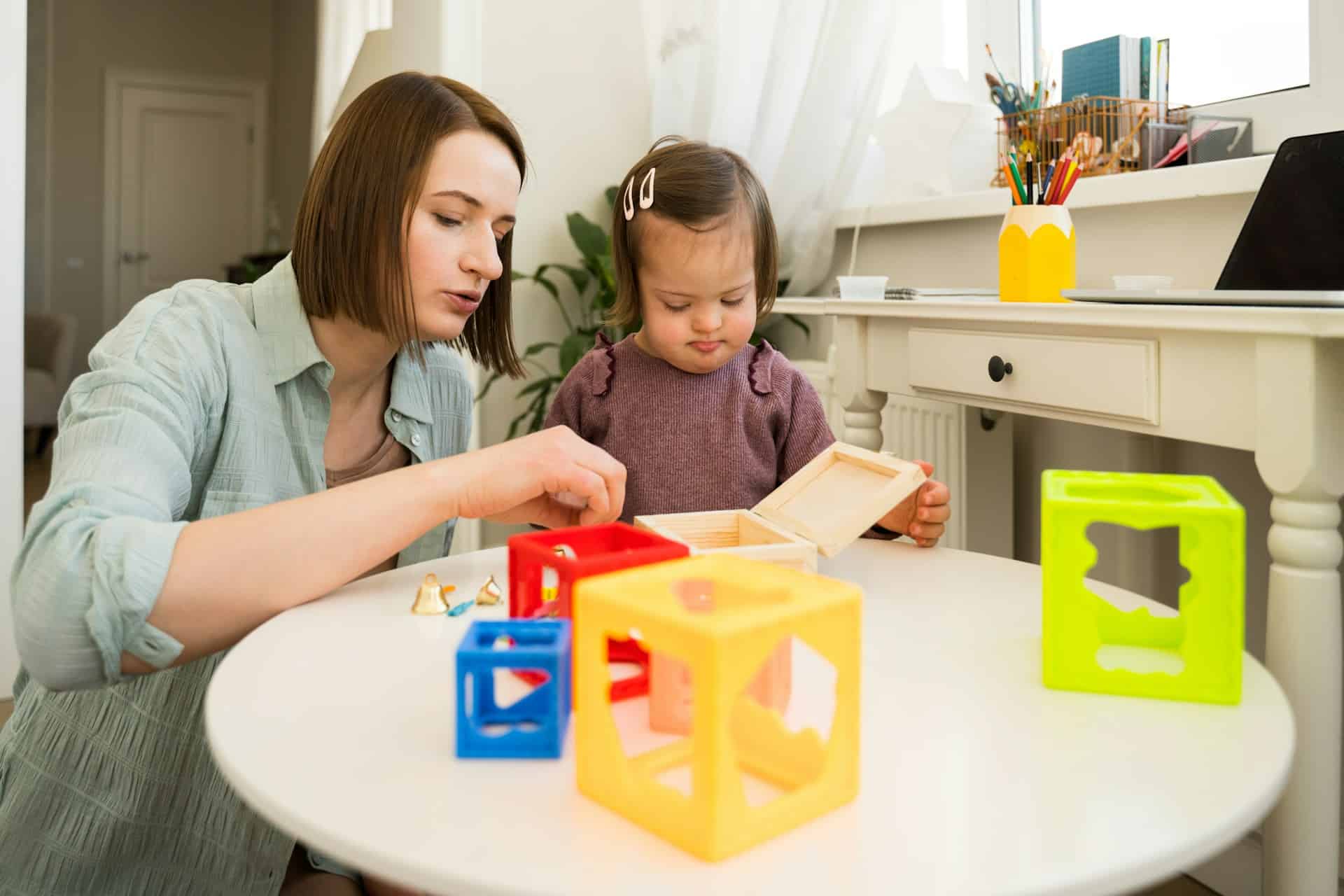What is the evidence?
The Early Start Denver Model is a comprehensive and holistic approach to increasing a child’s independence and overall skill development of children with autism and developmental delay. Evidence suggests that children participating in a one-on-one controlled environment (home or clinical) increased the child skill development across all developmental domains for children accessing an early intensive behavioural intervention program (EIBI) The aim of early intervention is to reduce the supports of the child in the future.
Expected Outcomes of an EIBI Program:
There are expected outcomes that a child will gain from an EIBI program;
- Increased ability to communicate will improve so that the child can consistently communicate his/her thoughts, needs, and feelings.
- Play and social skills will improve which will allow the child to participate in age-appropriate activities and form social relationships with peers.
- The child will be able to participate in and attend to others in his/her environment for longer periods of time to be able to learn skills and continue to develop.
- Improvement of his/her ability to regulate and reduce sensory sensitivities and repetitive behaviour, this will improve his/her self-care and community/social participation.
- The adults in the child’s life will build their capacity to adapt the child’s environment to meet his/her needs through positive adaptions and strategies and support his continued development after supports have faded.
Rationale for an EIBI Program
Intensive supports of 15+ hours of intensive behaviour intervention and Allied Health supports are reasonable and necessary according to the criteria outlined in Section 34 in the NDIS Act 2013, as follows:
- An EIBI will help the child achieve the goals set out by his family to be achieved through NDIS funded supports.
- Participation in mainstream school environment will help the child increase independence therefore, the child would benefit from starting an intensive program now, as it will allow the child to develop the skills he needs to be independent in life at a faster pace. Once the child has received intensive one on one the supports can then fade out to reduce the risk of the child becoming dependent on supports/adults and therapists.
- The above supports will increase the child’s social participation and will lead to his/her economic participation when he/she is older.
- The above supports include capacity building for the important adult’s in the child’s life to ensure those who spent the most time with the child will also receive the support and training to be able to effectively set up positive supported environments to continue to teach and develop the life changing skills the child needs.
- The support represents value for money as intensive intervention is shown that costs associated with early intensive intervention treatment were fully offset within a few years after the intervention because of reductions in other service use and associated costs.
- The support is most appropriately funded or provided through the NDIS, as it is a therapeutic support designed to improve the child’s participation at home, community and social contexts.
How does intensive supports reduce over time?
An EIBI is recommended that children access an EIBI program for two years. The first year of their EIBI program is recommended in a controlled environment such as the home or clinic and one year, and then transitioned into mainstream early learning environments to generalise these skills. This ensures promotion of independence and to eventually fade away from supports.
How does ESDM increase participation in the community?
Amazing Kids is set up to reflect a mainstream early learning environment. Children accessing the program have 3 group times per day, with their own therapist. This is to ensure generalisation of skills learnt through one-on-one teaching practices and generalised to other environment’s such as kindergartens, child care and other early learning centres (ELC). This is not limited to ELC’s, and generalisation of these skills is seen in everyday routines such as in the supermarket, at the local park and increase the participate in extracurricular activities such as swimming and gymnastics.
Parent Involvement
Amazing Kids offer’s parent training in both home and clinical environments. The ESDM team works both with families and their child is achieve measurable outcomes that are sustainable and relevant to families. Upon commencement of an EIBI program parents are recommended to engage on one-on-one parent training over a duration of 12 weeks, following the ESDM parent coaching principles. For example, toilet training programs or social skills programs that are based off the ESDM and supported and delivered to families in addition to their one-on-one programs in the home, kindergarten or clinic.
Evidence suggests that parent education and behaviour management skills delivered to parents increase families overall mental health and adjustment into an early intensive behavioural program. This is delivered by practitioners that have undergone the parent coaching training series delivered through the UC Davis Mind Institute.
How are my NDIS goal integrated into my child’s program?
Amazing Kids works closely with families and local area co-ordinators to ensure the family’s chosen NDIS goals are being targeted throughout the program. Amazing Kids writes comprehensive progress reports for families to demonstrates evidence of progress from their EIBI program. Each goal that is integrated into the child’s program is derived from the ESDM checklist (a comprehensive developmental checklist) that is then reported and provided evidence for progress in each developmental domain. Each report, comments on the NDIS goals that the family have selected with their local area co-ordinator.
** References available upon request.



